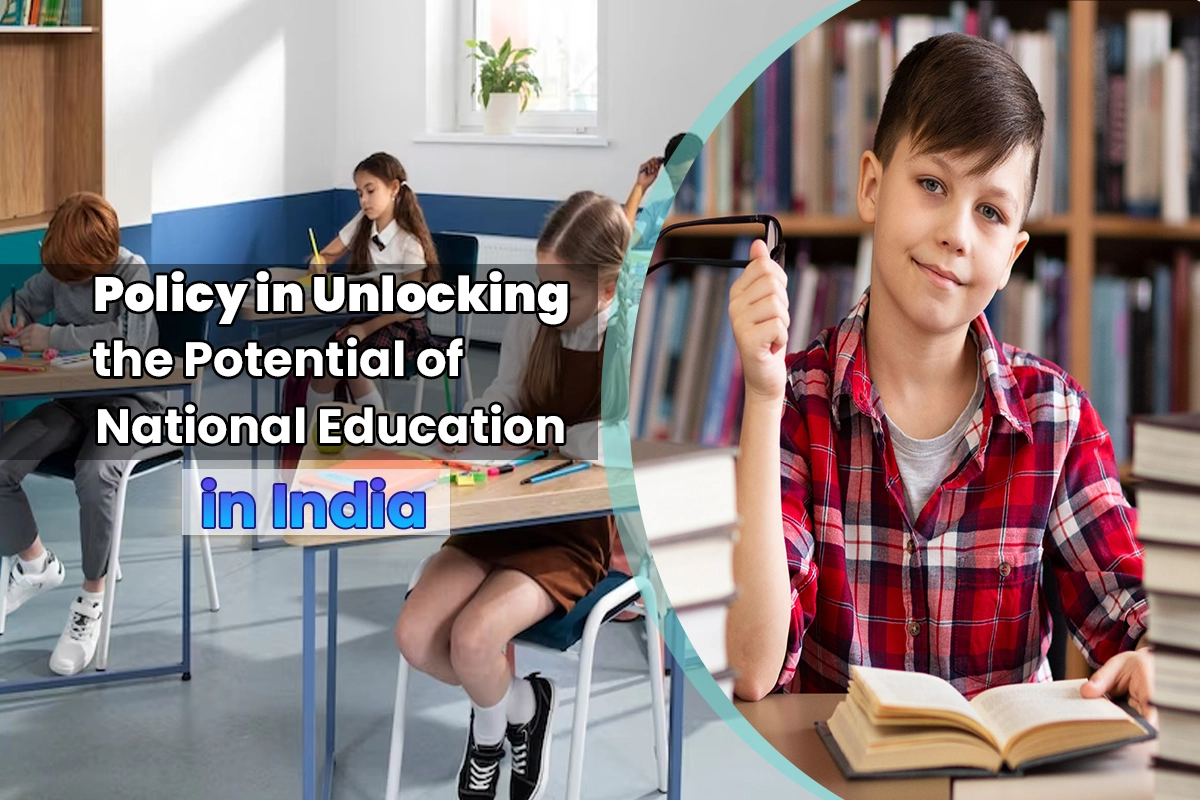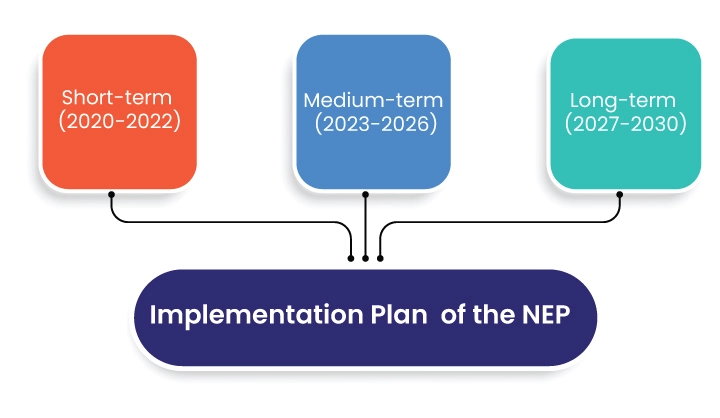
What is the National Education Policy(NEP) of India? To understand this, you must dive deeper into this blog to understand how NEP is a vast structure that aims to transform the country's education system.
The new education policy was unveiled in 2020 and is designed to address the challenges of the 21st century. This blog will offer a detailed guide to the reformed policy, including its key features, implementation plan, and more.
The variety of NEP core elements distinguishes it from previous education policies in India. For example, it proposes a new structure for school education that divides the ground system into four stages:
The policy also promotes the role of mother tongue in education as a medium of teaching and learning in schools, recognizes the importance of technology in education, and promotes vocational education and skill development. However, implementing the NEP faces several challenges.
For instance, the policy's success depends on its implementation at the grassroots level, which requires the involvement of various stakeholders. The policy also requires significant funding, which may be a challenge given the underfunding of the Indian education system.
Additionally, the proposed changes may face resistance from stakeholders who are comfortable with the existing system, and there is a shortage of qualified and trained teachers.
The reformed education policy seeks to improve the quality of education in India. It aims to turn India into a global knowledge superpower. It focuses on reforming the curriculum, improving teaching standards, providing access to quality education for all, and increasing the use of technology in the classroom.
The NEP emphasizes a holistic and multidisciplinary approach to education, which means that students will be taught various subjects to develop their critical thinking, problem-solving, and communication skills. This approach aims to make students all-rounders who can tackle real-world challenges.
For example, students may be encouraged to work together to identify and solve a local environmental problem, such as water pollution, while learning biology, chemistry, and physics. Through this collaborative approach, they will gain a deeper understanding of the sciences and the satisfaction of doing something to benefit their community.
The NEP provides a flexible curriculum and assessment system, signifying that students can choose their subjects and study at their own pace. The assessment system is designed to be formative and not just summative so that students can learn from their mistakes to enhance their performance.
The NEP recognizes the importance of digital education and provides for using technology to enhance the learning experience. This digitalization includes online courses, virtual labs, and interactive learning tools. For instance, the NEP encourages using technology to facilitate the development of innovative teaching techniques such as virtual field trips, digital mentor-ship programs, and simulations of real-world situations. Moreover, the NEP promotes using Artificial Intelligence (AI) and Machine Learning (ML) to personalize students' learning experiences.
The NEP emphasizes the need for teacher training and development to ensure they are equipped with the optimum knowledge and skills required to deliver quality education. The policy also creates National Professional Standards for Teachers to ensure they are held to a high standard.
The NEP identifies the importance of vocational education and provides for integrating vocational training into the mainstream curriculum. It will enable students to acquire skills that will make them employable and enable them to contribute to the country's economy.
The NEP recognizes the importance of multilingualism and provides for the promotion of regional languages in education. It will enable students to learn a language they are familiar with and help preserve the diversity of Indian culture. In addition, the NEP encourages children to learn more than one language to access different sources of knowledge and better appreciate the diversity and richness of Indian culture.
The National Education Policy of India has three primary objectives.
Additional: NEP 2020 has prompted the focus on Foundational Literacy and Numeracy (FLN) to bridge the knowledge transformation gap and initiated the exchange of meaningful and enjoyable learning outcomes in the student's age-appropriate class.
FLN National Education Policy 2020 aims to equip students with access to quality education and formulate basic literacy and numeracy skills. It emphasizes the significance of tracking individual students' progress, allowing educators to identify potential flaws and adjust their teaching strategies accordingly.
While the NEP has several positive features, its implementation faces several challenges. Some of the challenges in implementing the NEP are:
NEP is a new education framework that outlines the country's vision for education in the 21st century. The policy strives to transform the education system in India and make it more responsive to the needs of learners. It has three primary objectives:
The implementation of the NEP will be carried out in three phases:

The short-term plan focuses on implementing key policy initiatives such as revising the curriculum, teacher training, and integrating technology in education.
The medium-term plan focuses on the implementation of reforms such as the creation of a National Assessment Centre, the development of a National Curriculum Framework, and the establishment of a Higher Education Commission.
The long-term plan focuses on consolidating reforms and achieving key policy goals such as 100% literacy and establishing a vibrant research culture in Indian universities.
It has gone a long way in assessing students, passing through oral tests, written tests, public exams, internal and external assessments, continuous and comprehensive evaluations, and competency-based assessment processes. Efforts to shift from content-based assessment to competency-based assessment remained in progress.
This shift is necessary to provide a more holistic and comprehensive evaluation of student's abilities rather than just testing their knowledge of a particular subject. The NEP 2020's Assessment approach will help ensure that students have relevant and optimum skills to succeed in their future endeavors.
The focus is now on the following:
The National Education Policy is a comprehensive framework that aims to transform India's education system. The policy emphasizes a holistic and multidisciplinary approach to education, provides for a flexible curriculum and assessment system, and recognizes the importance of digital education, teacher training, vocational education, and multilingualism.
The imposition of the policy will be carried out in three phases, focusing on short-term, medium-term, and long-term goals. It is hoped that the policy will enable India to produce a workforce trained with the skills and knowledge required to tackle the challenges of the 21st century.
Share